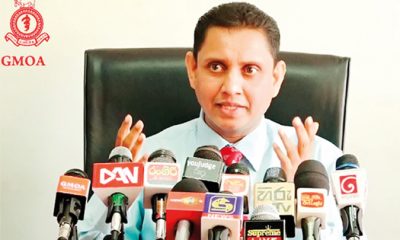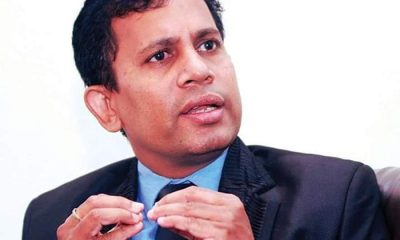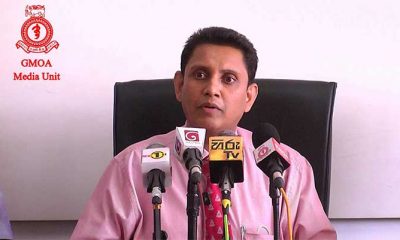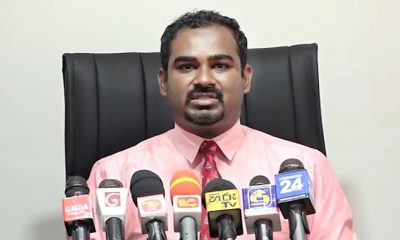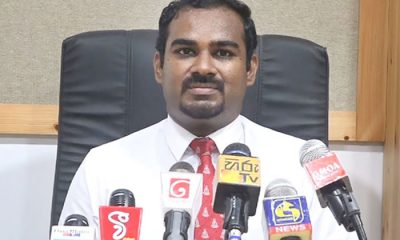News
About 375 specialist docs have left SL in 12 months

By Shiran Ranasinghe
Work in most hospitals have been severely affected by the migration of over 375 specialist doctors and thousands of healthcare staff, and drug shortages, doctors claim.About 50 per cent of doctors who are abroad to receive higher medical training to become specialists have informed that they have no intention of returning to the country.
So far, the hospitals in Kilinochchi, Anuradhapura, Tangalle, Hambantota, Mullaitivu and Dehiattakandiya are the worst affected and many clinics and other facilities provided by these hospitals have come to a standstill.
Government Medical Officers Association (GMOA) media spokesman Dr. Chamil Wijesinghe said that some hospitals would have to be closed down. About 1000-1500 doctors had left the country and no one had any idea about the number of nurses and other health staff who have left the country, he said
“This is a sad state of affairs and there are several reasons why health staff are leaving the country. One is the high taxes and another is the political and economic instability. They are also stressed out because they can’t treat patients due to medical shortages. Most of the doctors spend their day calling people and cajoling philanthropists to help them secure medicine for their hospitals,” he said.
Meanwhile, one of the two catheterisation machines of the Kandy hospital has broken down, placing the lives of some of the 8024 patients who are in the waiting list in jeopardy.
Head of the government radiologist union, Chanaka Dharmaratne said those machines were vital to treat heart patients. “One machine at the Kandy General Hospital is out of order while the other needs immediate servicing. These are important and expensive pieces of equipment that are vital in treating and identifying heart ailments,” he said.
A private hospital will charge about 100,000 rupees for the use of catheterisation machines and about one million rupees to introduce a stent, he said.Dharmaratne said that there are many drug and equipment shortages in the Lady Ridgeway Hospital for Children too.
Gampaha General Hospital Director, Dr. Himali Wijegunasekera said that they rely heavily on philanthropists to deal with the severe drug shortage in hospitals. She added that frequently needed drugs to treat high cholesterol, high blood pressure and diabetes are in short supply as well. Doctors at the hospital had given a list of drugs that are in short supply to the hospital development authority to circulate among philanthropists.
said they were planning to set up five paying wards at the hospital. There were about 2,400 medical specialists in the country. 285 were to retire soon after turning 65 and around 375 had left the country in the past 12 months, she said said.
Latest News
70,297 persons still in safety centers

The Situation Report issued by the Disaster Management Center at 06:00AM on 16th December 2025 shows that 70,297 persons belonging to 22,338 house holds are still being housed at 731 safety centers established by the government.
The number of deaths due to the recent disastrous weather stands at 643 while 183 persons are missing.

News
MEPA to crack down on marine polluters
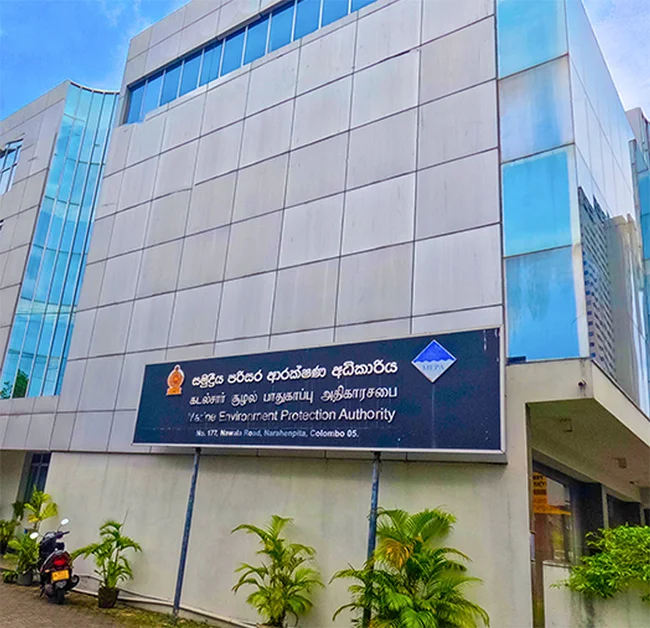
… Warns would-be polluters of criminal prosecution, hefty fines and even blacklisting
The Marine Environment Protection Authority (MEPA) has warned that ship owners, operators and local entities responsible for marine pollution will face criminal prosecution, heavy financial penalties and possible blacklisting, MEPA Chairman Samantha Gunasekera said yesterday.
Gunasekera told The Island that Sri Lanka would no longer tolerate negligence and regulatory breaches that threaten the country’s marine ecosystems, coastal livelihoods and national economy.
“Any party that pollutes our seas—whether foreign vessels or local operators—should be prepared to face the full force of the law,” Gunasekera said. “There will be no room for excuses, delays or backdoor negotiations when marine pollution is involved.”
He said MEPA has intensified surveillance of major shipping routes, ports and environmentally sensitive zones amid rising maritime traffic through Sri Lankan waters, which remain among the busiest in the Indian Ocean.
by Ifham Nizam
News
SC delegation, headed by CJ Surasena, observes Indian Supreme Court in action
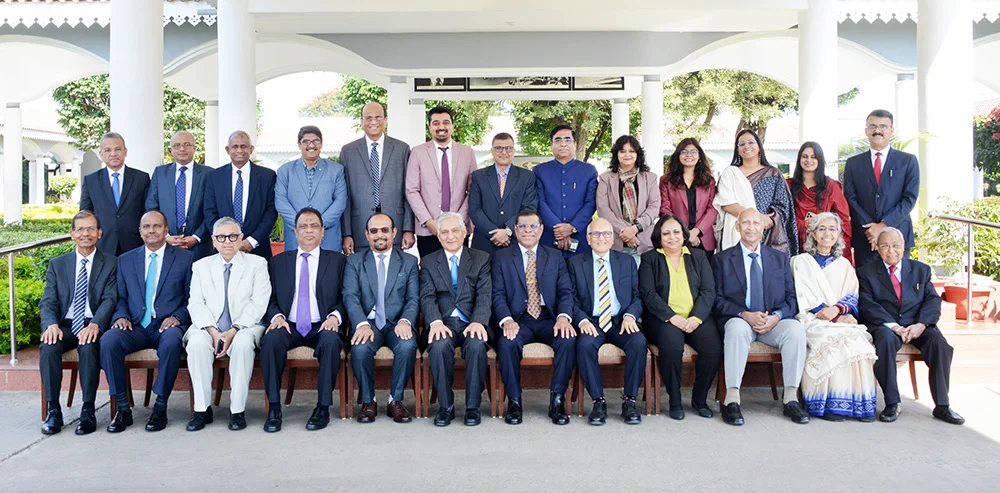
A 10-member delegation from Sri Lanka’s Supreme Court, headed by Chief Justice P. Padman Surasena, departed to New Delhi on the 11th of December, 2025, for an official visit to the Supreme Court of India as part of the ongoing official visit by the delegation to India.
The group was accorded a ceremonial welcome in the Court’s main hall, led by the Chief Justice of India (CJI) Surya Kant. CJI Kant told the assembled Judges that “the Indian judiciary was honoured to host” their Sri Lankan counterparts, expressing hope that the visit would be “meaningful and very constructive” and underscoring the “close emotional bonds” between the two countries.
The focal point of the programme was a special sitting of the Supreme Court. Chief Justice Surasena joined CJI Kant and Justice Joymalya Bagchi on the bench, presiding over the Court as a guest Justice. He was accompanied by nine other Supreme Court justices from Sri Lanka, who took seats in the well of CJI Kant’s courtroom to observe the day’s proceedings.
Supreme Court Bar Association President Vikas Singh formally greeted the delegation and praised Justice Surasena’s reformist efforts. Singh recalled the Sri Lankan Chief Justice’s own maxim, “If you want something you have never had, then you have got to do something you have never done”, highlighting the bold changes Surasena had introduced to modernise Sri Lanka’s Court system. Singh noted that these initiatives, particularly court digitization, were aimed at eradicating “the persisting problems of law delays” and streamlining case backlogs.
The Sri Lankan Judges spent the morning observing live Supreme Court proceedings in CJI Kant’s courtroom. This first-hand exposure to Indian court operations formed a key part of the programme’s judicial engagement. During the hour-long session, the visiting justices witnessed a range of cases on the Supreme Court’s roster, with Justice Surasena and the delegation following arguments from the front. The experience was designed to be immersive and following the hearing the Sri Lankan Judges were briefed on India’s own initiatives towards a digitalised court system, e-filing and case management systems.
The official programme then shifted to capacity-building and information exchange. In the early afternoon, Indian Supreme Court officials gave the Sri Lankan delegation detailed briefings on India’s technological initiatives. Court registrars demonstrated the e-filing system and other e-initiatives implemented by the Supreme Court of India. Additional presentations outlined the Court’s new case management systems and administrative reforms. These sessions highlighted how digital tools and better case-listing procedures have been used in India to increase efficiency. The Sri Lankan judges asked questions about India’s experience with electronic court records and the integration of technology in daily judicial work, reflecting their own interest in similar reforms back home.
The visit underscored the growing collaboration between the Indian and Sri Lankan judiciaries. Throughout the proceedings, both sides emphasised their shared legal traditions and mutual respect. As Chief Justice Surasena noted during the sitting, India is Sri Lanka’s “closest neighbour,” and historic links, even dating back to ancient epics, form the backdrop for today’s judicial dialogue. CJI Kant remarked that having the chief justices of two vibrant democracies together on the bench was a “significant moment” for the rule of law.
The Sri Lankan delegation continued its programme in Delhi on 12 December with a visit to the Delhi High Court and its International Arbitration and Mediation Centres. The exchange visit is expected to deepen judicial cooperation and provide practical insights for both courts. Officials on both sides say the engagement aimed at sharing best practices in court administration, reinforce legal ties and support ongoing reforms aimed at reducing case backlogs and delays.
-

 Features7 days ago
Features7 days agoFinally, Mahinda Yapa sets the record straight
-

 Features7 days ago
Features7 days agoHandunnetti and Colonial Shackles of English in Sri Lanka
-

 Business6 days ago
Business6 days agoCabinet approves establishment of two 50 MW wind power stations in Mullikulum, Mannar region
-
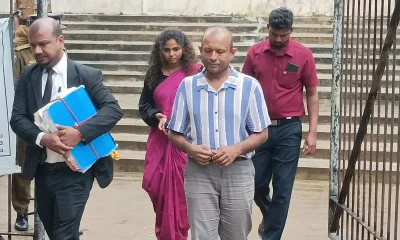
 News6 days ago
News6 days agoGota ordered to give court evidence of life threats
-

 Features6 days ago
Features6 days agoCliff and Hank recreate golden era of ‘The Young Ones’
-
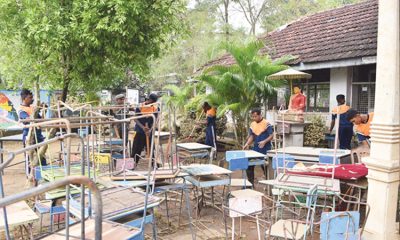
 Opinion7 days ago
Opinion7 days agoA national post-cyclone reflection period?
-
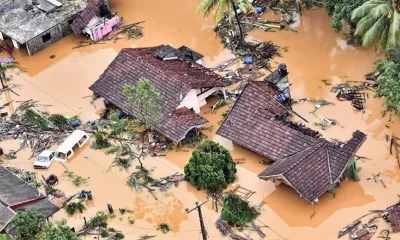
 Features6 days ago
Features6 days agoSri Lanka and Global Climate Emergency: Lessons of Cyclone Ditwah
-

 Latest News7 days ago
Latest News7 days agoSri Lanka squad named for ACC Men’s U19 Asia Cup




